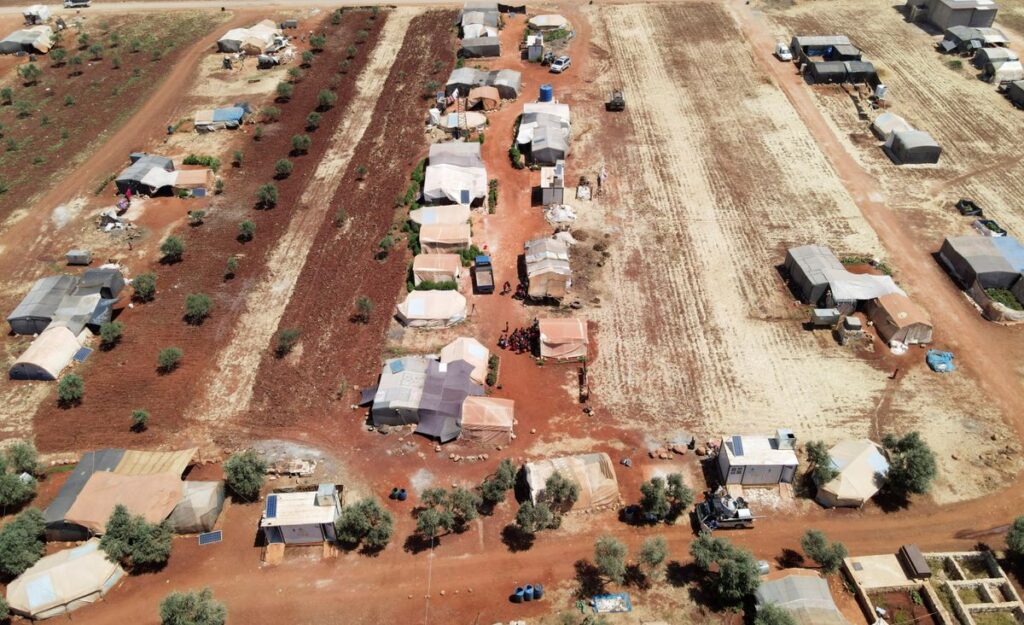Updates & Press
Featured | July 2, 2021
Weekly Humanitarian News Digest – July 2
Author | MedGlobalComms

Each week, we highlight the latest news related to the humanitarian and health crises in our countries of operation: Bangladesh/ Myanmar, Colombia/ Venezuela, Gaza/ Palestinan Territories, India, Lebanon, Pakistan, Sudan, Syria, and Yemen. For more frequent updates, make sure to follow us on Facebook, Instagram, and Twitter.
Cover Image: REUTERS/Khalil Ashawi
Latest News for June 28 – July 2, 2021
Bangladesh/ Myanmar
The Qatar Red Crescent Society (QRCS) and Kuwait Red Crescent Society (KRCS) undertake a joint project to improve living conditions in Cox’s Bazar. 1,200 shelters and three health care centers will be built in the Bangladesh refugee camp of Cox’s Bazar that will increase humanitarian organizations’ capacity to deliver life-saving aid and health interventions. (ReliefWeb)
Colombia/ Venezuela
UN World Food Programme (WFP) starts school meals programme. This WFP initiative received its first food shipment on July 1. The WFP intends to provide food to vulnerable school-aged children living in food-insecure areas of Venezuela, planning to deliver 42,000 food packages in July alone. (WFP)
Gaza/ Palestinian Territories
Conflict-driven trauma in Gaza damages maternal and infant health. According to Palestinian psychologist Helana Musleh, “Trauma, stress and proximity to explosions have led to many miscarriages during the war, as well as a higher number of stillbirths.” Widespread birth difficulties show how war and conflict often have the most severe impact on women and children. (The Guardian)
India
Women in India are vaccinated against COVID-19 at a significantly lower rate than men. Vaccine hesitancy, lack of prioritization of women’s health, and lack of access to vaccination centers all greatly contribute to this gender-driven vaccination disparity. Recommendations are made for social activists to address the social norms at the root of this health disparity. (The Guardian)
Lebanon
Lebanon’s economic collapse is damaging children’s futures. 70% of households in Lebanon are food-insecure. Often, families have no other choice than to use negative coping mechanisms that are very harmful to children in order to make ends meet. Children in Lebanon often skip meals, enter the labor force, or are married off at a young age in order to provide for themselves and their families. (UNICEF)
Pakistan
The National Institute of Health and the WHO work to improve Pakistan’s capacity to address COVID-19. 32 PCR machines for COVID-19 testing have been delivered so far. Additional equipment has also been delivered that will strengthen Pakistan’s health infrastructure, allowing for increased ability to survey for future variants of SARS-CoV2. (WHO)
Sudan
Sudan has seen a 30% decrease in internal displacement since May 27 of this year. The latest June 27 estimates from the Humanitarian Aid Commission (HAC) and International Organization for Migration (IOM) report that 105,100 internally displaced people currently reside in Ag Geneina and surrounding areas of Sudan. Despite the recent improvements in stabilization of the area, many people returning home from displacement are in need of psychosocial and mental health care to deal with the trauma of their experiences. (UN OCHA)
Syria
Failure to renew cross-border assistance in Syria by July 10 will have catastrophic consequences. Bab al-Hawa in northwest Syria is currently the last open cross-border site that allows for life-saving humanitarian aid to be delivered to millions of Syrians. Without the 1,000 truckloads of medicine and aid supplies arriving into Syria through the Bab al-Hawa crossing per day, preventable illness and death could increase on an alarming scale. Cross-line aid is no substitute for cross-border operations. Vetoing of cross-border assistance would be fatal for millions. (Reuters)
Yemen
As of July 1, the World Bank will give Yemen $150 million to combat aid funding gaps. This grant money will help to address the worst ongoing humanitarian crisis in the world, funding sorely needed public health projects across the area. Officials hope that the grant will reach extremely vulnerable populations suffering from severe food insecurity and lack of health infrastructure in hard to reach areas. (Reuters)


